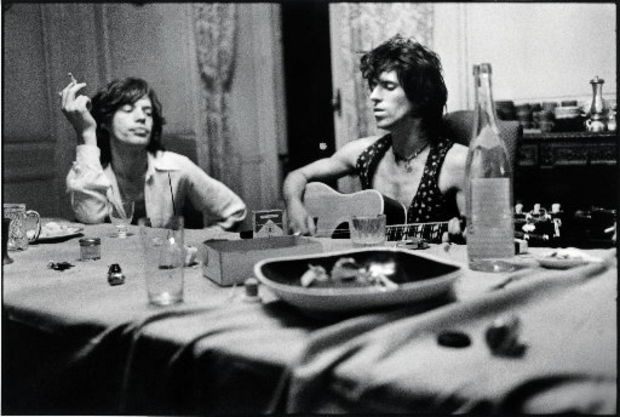Of all the romance languages, can anything touch music’s resonance? It’s weird familiarity and otherworld-liness?
What is it, if not a language? One that resides somewhere in all of us, usually as receptor, but sometimes as that rare transmitter.
And my god! the brilliance of those who can speak it. Even the burnouts and dummies. You’ve seen them. Dumb as rocks, handsome as bank thieves and driven by something that’s beautiful, primal.
“So you run and you run to catch up with the sun but it’s sinking
Racing around to come up behind you again.
The sun is the same in a relative way but you’re older,
Shorter of breath and one day closer to death.”
— Time, Pink Floyd, Dark Side of the Moon
Roger Waters was 26 years old when he wrote that. But how is that? How does a kid in his mid-20’s, rich, young and famous, have any inkling that deep — about time, no less. And he hardly stands alone. The British Invasion came on the shoulders of neophytes who somehow already knew to be mad at a world they didn’t yet know was maddening.
Yet that’s the genius of the language of rock (and, perhaps, bands): For some reason, that genre peaks in the young.
That’s not true for any other art forms. Da Vinci was 50 when he painted the Mona Lisa. Hemingway, 40 when he wrote For Whom the Bell Tolls. Artists tend to progress as age wizens our senses, widens our peripheral view.
But name one rock star (no less a band) that’s as good now as five years ago.
It used to madden me, why that was. Then I saw this, which puzzled me even more:
If that’s not one for the archeologists and paleontologists of future eons, I don’t know what will be. That this baby — who can know nothing of lyrics, meaning, fame, celebrity or the difference between Perrier and puddle water — can move, muscles in concert, as miniature maestro as a pop song upticks in tempo means something. It has to.
Mom used to tell the story of me as toddler when I heard the Frank Sinatra song “It Was a Very Good Year,” a song that got me so sad when I heard it I would eventually stop what I was doing to lay my head in mom’s lap. I never really believed it; it was written in 1961, four years before I was born. and I could barely balance, let alone decipher lyrics.
Yet I never forgot that story, and dedicated a playlist, “Break My Heart,” to that story. The playlist contains only songs that, if I sit long enough and listen to the lyrics, will make me cry.
I have dozens of playlists from more than 6,000 songs that soundtrack my life, that follow me from shower to car to bed and to shower again. The “Fuck You Motherfucker” is for songs that let me vent. “Shut Up And Listen” are instrumentals for writing. “Long Gone Daddy” are for soured relationships and road trips.
But it was always Frankie and Break My Heart that puzzled me most. I’ve come to love the depth music can take me, even the dark places. What other poetry takes you there? (Though there is one song, Colin Hay’s “I Just Don’t Think I’ll Ever Get Over You” that I dare not put on the playlist for fear of hearing its haunting truths too often). How many book passages can we quote? How many lines of poetry?
Now count how many albums.
But I may have lucked upon an answer, one at least that will stop this brain from imminently frying. I saw a documentary that passingly mentioned that the human auditory system is completely developed in the human fetus at 20 months.
Eureka! For four months, we have been listening to the world around us, aware that we are part of a choir, though we don’t yet know the chorus. But we still sing. Somehow, we know how this riff goes. It’s more than a catchy beat, a rousing crescendo, a stunning vibrato. It’s more than that. It’s something true.
It’s our native tongue.

